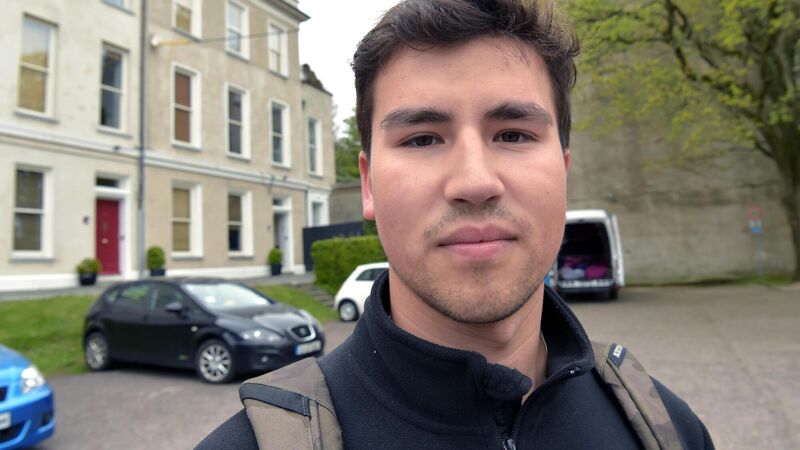Couch surfing and sleeping in cars: the realities facing English language students in Ireland

English language student Sebastian Carvallo Farina at Belgrave Place on Wellington Rd in Cork near where he and others had to sleep on the street last weekend. Picture: Dan Linehan











